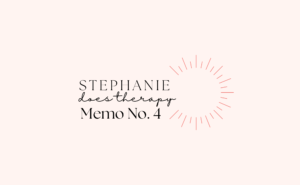Relationship OCD is a subtype of OCD (obsessive compulsive disorder) that causes repetitive fears and doubts about relationships. While it often appears in romantic or intimate relationships, it can appear in any valued relationship.
ROCD may look like insecurity to the other person in the relationship as common compulsions are assurance seeking, reviewing your current or past relationship, and checking for feelings of arousal, doubt, and love.
These compulsions are triggered by intrusive thoughts such as questioning if your partner truly loves you, or if you truly love them, questioning if they are the right partner, questioning if you will still be a good person (daughter, son, spouse, friend, partner) if you do or don’t do something, or being over focused on your partner’s perceived flaws in appearance (don’t dress nice enough), intelligence, or social abilities.
These thoughts are hard if not impossible to shake. They are constant and repetitive. A person can doubt any aspect of a relationship. However, with ROCD, this is something that can appear from relationship to relationship. It isn’t about your relationship, it is about ROCD.
CAVEAT: An abusive relationship can cause a lot of self-doubt and questioning. While it is possible to both have ROCD and be in a abusive relationship, getting out of the abuse is the priority.
DO THIS: If you are in Oklahoma, contact me for a consultation. If you are looking for more education on ROCD, go to the IOCDF.org website. If you are looking for a therapist, look for someone trained in Exposure and Response Prevention. Talk therapy has bene shown to worsen ROCD symptoms.

